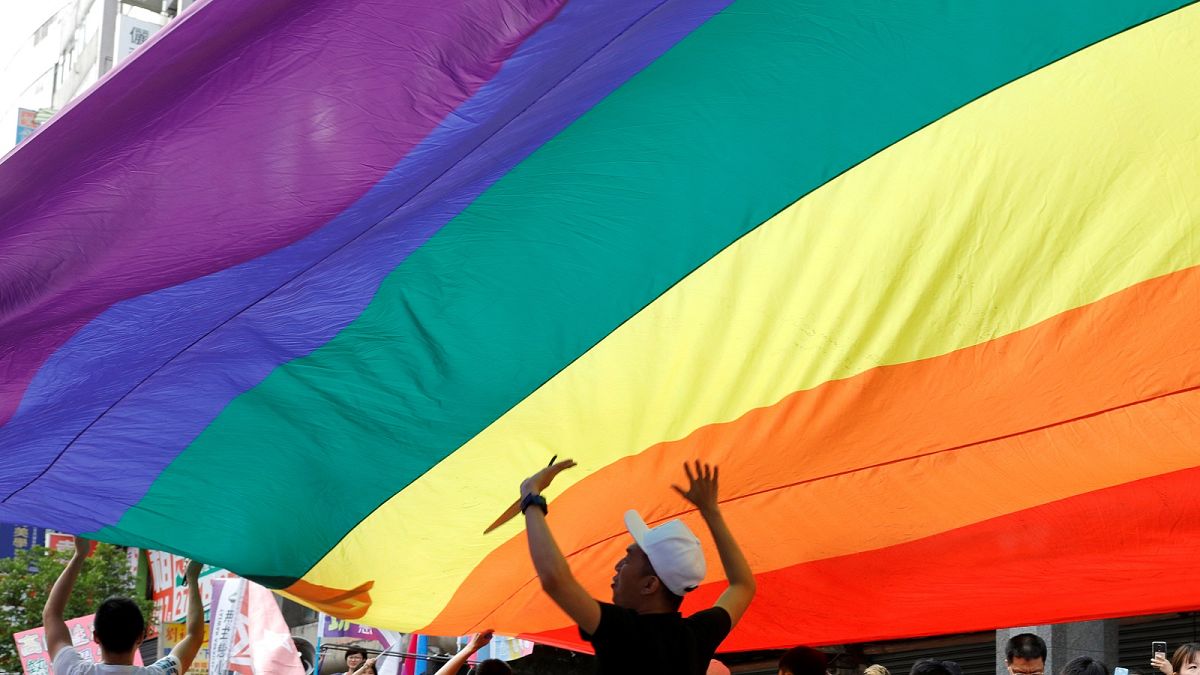The term “conversion therapy” has been appearing in news headlines increasingly often, most recently when a draft law banning itwas announced in Germany earlier this month by its Minister of Health, Jens Spahn. This is certainly cause for celebration.
The term “conversion therapy” has been appearing in news headlines increasingly often, most recently when a draft law banning it was announced in Germany earlier this month by its Minister of Health, Jens Spahn. This is certainly cause for celebration.
“Conversion therapy” is the most widely used term to describe practices which aim to change, suppress, or divert the sexual orientation, gender identity or gender expression (SOGISC) of people who don't fit the narrow margins of arbitrarily assigned norms. It is also called SOGISC change efforts, reorientation therapy, reparative therapy, reintegrative therapy, or support for unwanted same-sex attraction or transgender identities. In essence, “conversion therapy” constitutes cisgender heteronormative indoctrination.
Our report “Harmful Treatment. The Global Reach of So-Called Conversion Therapy”, issued by OutRight in August this year, shows that such practices vary across religious, cultural, and traditional contexts. They also range in their levels of psychological and physical violence, but are prevalent in countries across the globe. Having been condemned by most major psychological, psychiatric, and medical associations, including the World Psychiatric Association, they are recognised to not only never achieve their intended outcome, but to instead cause deep, lasting trauma.
Yet despite the abusive nature of these practices, only four countries - Ecuador, Brazil, Malta and Taiwan – have banned “conversion therapy.” A few others, including the US, Canada, Argentina, South Africa, have partial or policy bans, and a handful more, including the UK and Mexico, are considering bans.
Germany has gone beyond consideration. A concrete draft law has been published and will likely be put in front of the Parliament for voting next year. If passed, the number of countries banning these horrific practices will jump to five.
This is a very welcome, and a much needed step. Bans are incredibly important. They send a strong message that LGBTIQ people are not in need of “change” or “cure,” that we are accepted and respected the way we are. Moreover, they clearly indicate that those perpetrating “conversion therapy” are at fault, not the LGBTIQ people they seek to convert. As such, bans go a long way in changing the societal perceptions which drive the existence of “conversion therapy.”
But bans are also not enough. The prevalence of “conversion therapy” is directly related to just how deeply scorned and feared LGBTIQ people are in societies around the world. These practices hinge on the belief that cisgender heterosexuality is the only accepted norm, and gender identities beyond the binary and same-sex attraction are an anomaly, a sickness and something to be “reoriented,” changed or “cured” - if need be by brutal, inhuman force.
As such, “conversion therapy” cannot be tackled in isolation. The demand for such practices will decrease only if social, family and religious acceptance of LGBTIQ lives increases. Consequently, any legal efforts to tackle “conversion therapy” have to go hand in hand with measures designed to promote understanding, acceptance and inclusion of LGBTIQ people.
Our research shows that people acting in the name of religion and medical professionals are among the key perpetrators of the so-called therapy, so there is a key role for both to play in tackling its prevalence. “Conversion therapy” is neither therapy, nor does it result in conversion. These practices are not grounded in science or medicine, and have been denounced by medical associations the world over. Therefore, medical professionals offering such services should have their licenses revoked.
Religious institutions which engage in these practices should also face consequences. Religion cannot serve as a cover for inhuman treatment. Therefore, religious leaders have a responsibility to foster inclusivity and acceptance of LGBTIQ people within their communities. Religious institutions which promote “conversion therapy” should not be able to receive government or international funding, and in cases of physical abuse, perpetrators should face criminal consequences.
Germany is certainly heading in the right direction to achieve true LGBIQ equality and inclusivity in its society. I look forward to watching the proposed legislation make its way through parliament and beyond, and I hope that Germany taking this step will pave the way for others to follow suit.
- Jessica Stern is the Executive Director of OutRight Action International. She has helped secure the mandate of the United Nations Independent Expert on Sexual Orientation and Gender Identity. Her writing has been cited by the Indian Supreme Court in its judgment decriminalizing same-sex relations and featured in The Oxford Handbook of Women, Peace and Security (2019).
____________
Are you a recognised expert in your field? At Euronews, we believe all views matter. Contact us at view@euronews.com to send pitches or submissions and be part of the conversation.
